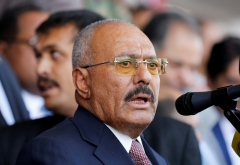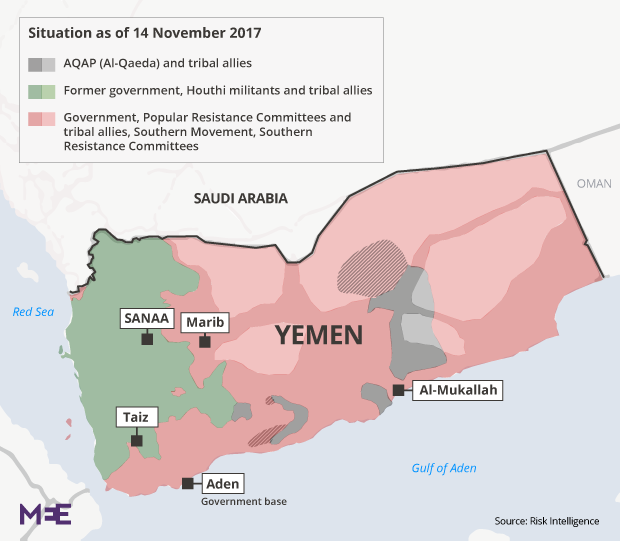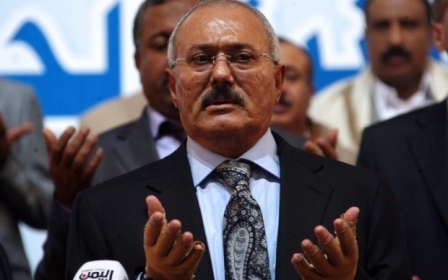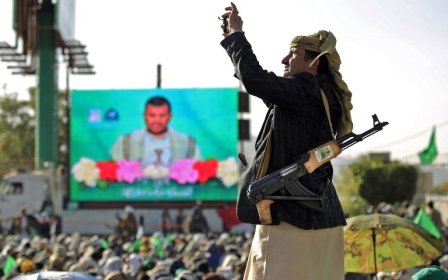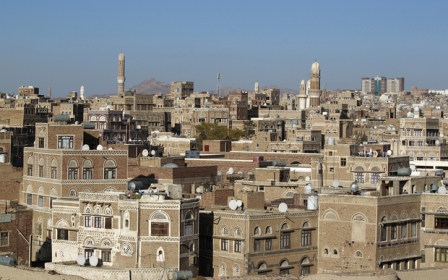Yemen war: Saudi planes bomb Houthis to support Saleh's forces
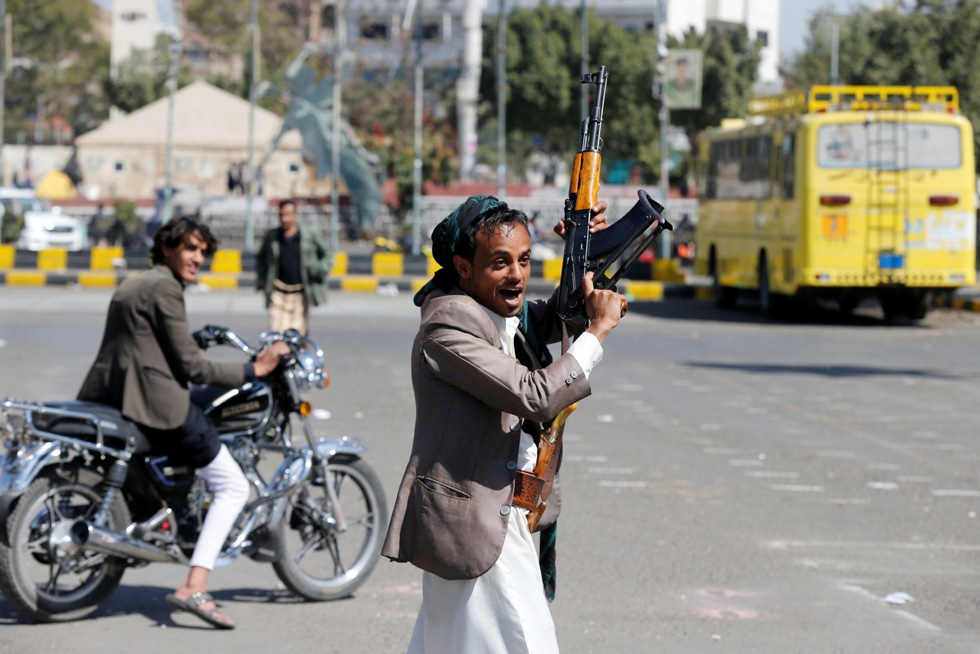
Saudi coalition aircraft struck Houthi positions in Sanaa overnight in support of Ali Abdullah Saleh, whom they have opposed during Yemen's civil war.
The Saudi-owned al-Arabiya television said coalition aircraft pounded Houthi outposts in southern Sanaa, but gave no details on casualties. Residents reported at least five air strikes shook the highlands of the area.
The attack came a day after the former Yemeni president signalled a shift in alliances by using a live television address to say he was ready to make peace with the Saudi-led coalition, after four days of clashes between his forces and his former allies, the Houthis.
The fighting in the Hadda district of Sanaa has killed dozens of people and wounded hundreds, according to the International Committee of the Red Cross. Houthi chief Abdul Malik al-Houthi confirmed that at least 40 were killed or injured. Security sources in Sanaa put the toll at more than 60.
Inside Sanaa, residents said that Houthi fighters seized the studios of Yemen Today, a news channel owned by Saleh, from which he made his broadcast on Saturday.
Saleh’s apparent shift in position could pave the way for an end to three years of fighting that has killed more than 10,000 people, caused a cholera epidemic and brought the country to the brink of famine.
Saleh's open overture to Riyadh came a day after talks with the Houthis failed to broker a truce.
"I call on our brothers in neighbouring countries ... to stop their aggression and lift the blockade ... and we will turn the page," he said in a televised speech.
"We vow to our brothers and neighbours that, after a ceasefire is in place and the blockade is lifted ... we will hold dialogue directly through the legitimate authority represented by our parliament."
The nation’s airports and ports are under a crippling blockade by coalition forces imposed last month after a Houthi missile was intercepted near Riyadh.
Houthis condemn Saleh's 'coup'
The Houthis condemned Saleh's speech and accused him of staging a "coup" against their alliance by attempting to ally with their Saudi foes.
Saleh's announcement was welcomed by the Saudi-led coalition, which has been fighting the Houthi-Saleh alliance since 2015 to support the internationally recognised government of President Abd Rabbuh Mansour Hadi.
"The decision by [Saleh's] General People's Congress to take the lead and their choice to side with their people will free Yemen of ... militias loyal to Iran," it said in a statement carried by the official Saudi Press Agency.
The Shia Houthi group is backed by Saudi Arabia’s regional rival Iran. Saudi Arabia and the United States have accused Iran of supplying weapons to the Houthis, which Tehran strongly denies.
Hadi's government also appeared to welcome Saleh's move away from the Houthis, whom it accuses of promoting Iranian interests in Yemen.
"We declare our determination to ... preserve the Arab identity of Yemen and the unity of its territory and cooperate with every loyal Yemeni citizen working to rid our country of these vicious gangs," it said in a statement.
Yemen descended into civil after the Houthis, a Zaidi Shia group from northern Yemen, seized control of the government from Hadi in 2014.
Former president Saleh, a longtime ally of Saudi Arabia, joined forces with the Houthis, his former enemies, and established a parallel government as Hadi's administration fled to Aden.
Saleh resigned after 33 years as president under popular and political pressure in 2012, ceding power to his then-vice president Hadi, who now lives in exile in Saudi Arabia.
The Saudi-led coalition, which accuses Saleh of betraying his Arab neighbours by joining the Houthi forces, intervened in 2015 to prop up Hadi’s government.
Middle East Eye propose une couverture et une analyse indépendantes et incomparables du Moyen-Orient, de l’Afrique du Nord et d’autres régions du monde. Pour en savoir plus sur la reprise de ce contenu et les frais qui s’appliquent, veuillez remplir ce formulaire [en anglais]. Pour en savoir plus sur MEE, cliquez ici [en anglais].


